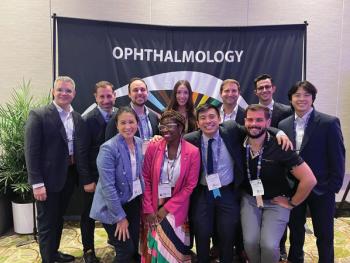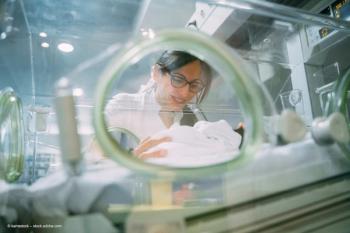
ARVO 2023: Ascidian Therapeutics shares insight on new gene therapy
Our team met with Jay Barth, MD, at the 2023 ARVO annual meeting, where he shared more about the work at Ascidian Therapeutics and how the company is developing a new method to administer gene therapy.
Our team met with Jay Barth, MD, at the 2023 ARVO annual meeting, where he shared more about the work at Ascidian Therapeutics and how the company is developing a new method to administer gene therapy.
Video transcript
Editor’s note: Transcript lightly edited for clarity.
Jay Barth, MD:
Hi, I'm Jay Barth. I'm the Chief Medical Officer at Ascidian Therapeutics, and I'll talk to you about the science that underlies the work at Ascidian. We are developing a new way of administering gene therapy, and, through a mechanism known as exon editing of RNA, we're able to restore protein to genes that are deficient or non-functional, due to mutations, in which cases the gene therapy and gene editing technologies that are currently available are not applicable. In particular, genes that are of large size and beyond the carrying capacity of current AAV.
And that's a perfect example of which is the lead candidate in our pipeline, which is for Stargardt's disease and treatment of other ABCA4 related retinopathies. These retinopathies related to ABCA4 are the most common genetic form of macular degeneration, usually affecting people in their second and third decade of life, with progression over the subsequent years to loss of vision. We believe that with the technology that we have, we would [be] able to replace the mutated exons in the RNA of these patients with wild-type exons. In other words, restore normal mRNA in order for the patient to produce normal ABCA4 protein, and this is using the cell's own machinery.
So there's no foreign enzymes involved. But we feel that the advantages of this technology are that it edits RNA and not DNA, so it does not have any long lasting impact on the patient's DNA, that it can address diseases where the gene is too large for standard gene therapy, that with replacing exons, we can treat multiple different mutations, meaning one drug can treat many different patients, and that this technology really regulates the amount of protein that's produced, so that it avoids any issues of under expression or over expression of the protein. So for all these reasons, we're very excited about this program.
The initial program is [inaudible] editor that replaces exons, 1 to 22 of the ABCA4 gene, and that can address the majority of patients mutations in ABCA4 retinopathy. We are now in presenting at this meeting both in vitro and in vivo data. For this program, the in vitro data includes a cell disease model of ABCA4 knockout and then administration of the treatment. We're also presenting data on retinal explants, showing expression, RNA replacement and expression with administration of the exon editor, and importantly, non-human primate data that shows a fairly high level of RNA replacement in monkeys that are treated with the ABCA4 exon editor, and showing resistance of the RNA replacement at this high level out to six months. So with all of that in vitro and in vivo data, we are now in the middle of conducting our studies towards an IND and hope to move into the clinic as soon as possible in order to begin our Phase 1/2 clinical trial in Stargardt disease and other ABC4 related retinopathies.
Newsletter
Keep your retina practice on the forefront—subscribe for expert analysis and emerging trends in retinal disease management.




